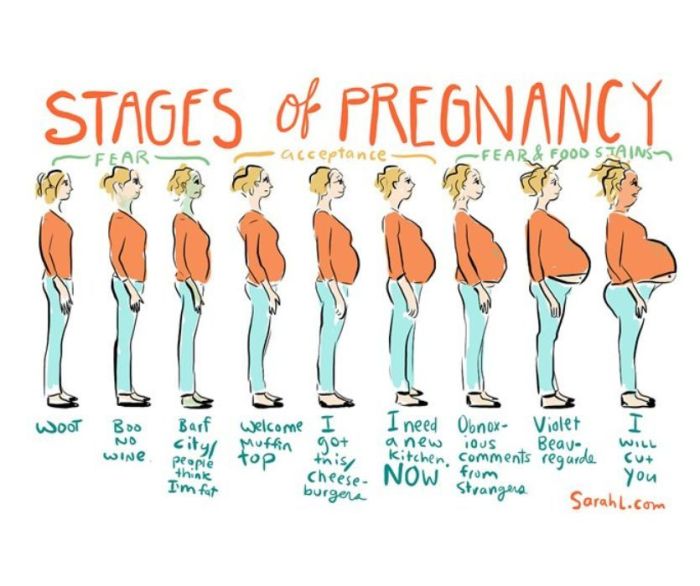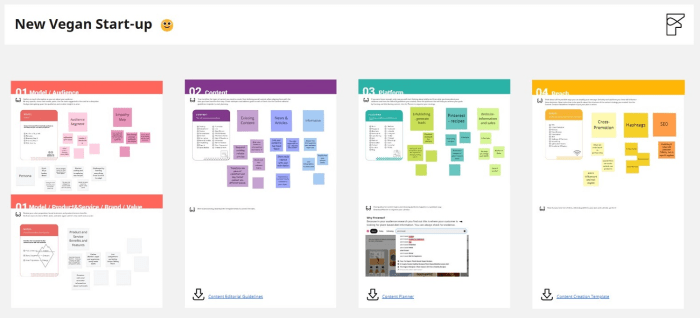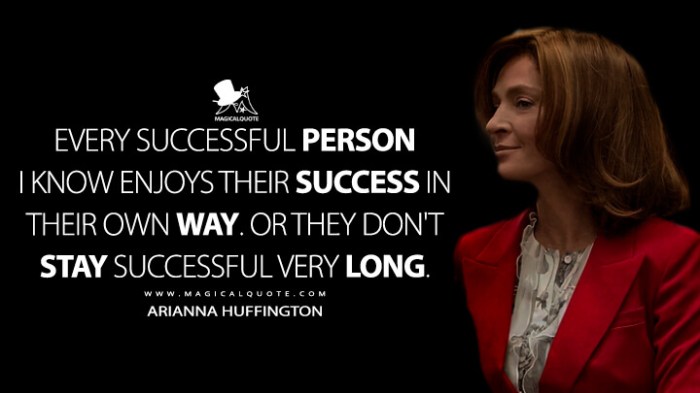The older you get the fewer friends youll keep but thats really fine – The older you get the fewer friends you’ll keep but that’s really fine. This exploration delves into the often-observed phenomenon of shifting social circles as we age. We’ll examine why this change happens, how individuals navigate it, and whether it truly signifies a decline in well-being. From societal pressures to personal choices, this post offers a multifaceted perspective on the evolution of friendships over time.
Understanding the reasons behind this shift is key. Often, priorities and interests evolve as we progress through life stages. Family commitments, career advancements, and personal growth can all impact the time and energy we dedicate to maintaining friendships. This is not about losing touch with everyone, but rather adjusting and focusing on connections that resonate most deeply with our current life chapter.
Understanding the Statement
The phrase “the older you get, the fewer friends you’ll keep, but that’s really fine” encapsulates a common observation about changing social dynamics and priorities as we age. It acknowledges the natural ebb and flow of friendships, often accompanied by a shift in focus from large social circles to smaller, more meaningful connections. This sentiment reflects a potential acceptance of this shift, suggesting a personal understanding of its inevitability and even its desirability.This statement touches on the evolving nature of relationships, the importance of quality over quantity, and the potential for finding fulfillment in fewer, but deeper, connections.
It hints at an internal acceptance of this change, suggesting a recognition that the value of a friendship might not be directly correlated with its frequency.
Different Perspectives on the Statement
This statement carries multifaceted interpretations, influenced by various perspectives. The table below explores these different viewpoints.
| Perspective | Explanation | Example | Counterpoint |
|---|---|---|---|
| Societal | Societal expectations often encourage maintaining extensive social networks. This can create pressure to stay in touch with many people, regardless of the depth of the relationship. | A young professional might feel obligated to maintain contact with colleagues from university, even if their conversations are infrequent and lack genuine depth. | Strong, meaningful connections can form in unexpected places, defying societal norms. |
| Personal | Personal experiences and values influence the prioritization of friendships. Some individuals might find fulfillment in smaller, close-knit groups, while others might feel a sense of loss when relationships fade. | Someone who values deep emotional intimacy might feel a natural shift toward fewer, but more profound, friendships as they age. | Maintaining a large social network can provide a sense of belonging and support, especially in times of need. |
| Developmental | As individuals mature, they often prioritize personal growth and self-discovery. This can lead to a natural detachment from friendships that no longer serve a purpose. | A young adult might be more willing to maintain contact with childhood friends than an older adult who has established their own family and career. | Meaningful connections can persist throughout life, even with evolving priorities and goals. |
| Philosophical | This statement can be viewed philosophically as an acceptance of the natural cycle of relationships. It suggests a recognition that the quality of connections, not their quantity, ultimately matters. | A person might find solace in the wisdom of embracing the natural changes in relationships as life unfolds. | Maintaining connections, even if superficial, can offer practical benefits and social support. |
Social Dynamics and Age: The Older You Get The Fewer Friends Youll Keep But Thats Really Fine
Aging brings about significant shifts in our social lives. As we navigate different life stages, our priorities and interests evolve, impacting the composition and nature of our social circles. These changes are often complex and nuanced, reflecting individual experiences and broader societal trends. Understanding these dynamics can help us better appreciate the journeys of ourselves and others as they progress through life.The number of friendships we maintain often decreases with age.
This is not necessarily a negative reflection on our relationships, but rather a natural consequence of life’s evolving priorities and circumstances. Factors like geographic mobility, career changes, and family commitments can all contribute to a shift in social circles. Ultimately, the depth and quality of our relationships often become more important than the sheer quantity.
It’s true, the older you get, the fewer friends you tend to keep, but that’s perfectly fine. Sometimes, life’s journey leads us to different paths, and that’s completely normal. While you’re focusing on those meaningful connections, why not indulge in some delicious cake frosting recipes? Check out nomnomnom 4 flavourful cake frosting recipes that you cannot miss for some inspiration.
Ultimately, prioritizing quality over quantity in friendships is key, no matter what stage of life you’re in.
Common Social Changes Associated with Aging
Various factors contribute to the shifting social landscape of aging. These include the changing dynamics of family relationships, career transitions, and the impact of health conditions. For instance, the responsibilities associated with caring for aging parents or children can consume considerable time and energy, potentially reducing the time and resources available for maintaining friendships outside the immediate family.
Factors Influencing the Number of Friendships Maintained
Several factors influence the number of friendships maintained throughout life. Geographic relocation, career changes, and family commitments can all play a significant role in altering social circles. Health conditions and changes in mobility can also impact the frequency and ease of maintaining social connections. The evolution of interests and priorities also plays a critical role, as people often seek out social interactions that align with their current life goals.
How Priorities and Interests Evolve with Age
As we age, our priorities often shift. Work-related responsibilities may decrease, while family and personal pursuits may take precedence. This shift in focus naturally impacts our social circles, as we might gravitate towards individuals who share similar interests and goals in this new phase of life. For example, someone who was previously deeply involved in a professional network might find themselves more drawn to social groups focused on hobbies or volunteer work.
Social Circles Change Over Different Life Stages
| Stage of life | Typical social groups | Changes in priorities | Impact on friendships |
|---|---|---|---|
| Early adulthood (20s-30s) | Friends from college, work colleagues, dating partners | Career development, establishing independence, building a family | Friendships may fluctuate based on geographic proximity and shared life goals. |
| Mid-adulthood (40s-50s) | Family, work colleagues, community groups, hobbies | Family responsibilities, career advancement or transition, health considerations | Friendships may be more selective, focusing on those who share common values or life experiences. |
| Later adulthood (60s-70s and beyond) | Family members, senior centers, clubs, volunteer groups | Retirement, health concerns, leisure pursuits, maintaining independence | Friendships often shift to close family and individuals who share similar interests or activities. Geographic proximity becomes more significant. |
Acceptance and Well-being
The natural ebb and flow of friendships throughout life often coincides with changes in priorities and circumstances. As we mature, our social circles may evolve, and the number of close friends might decrease. This shift can be a source of adjustment, but it doesn’t necessarily equate to a loss of connection or well-being. Rather, it often signals a redirection of energy and focus towards different aspects of life.Acceptance, in this context, isn’t about passively enduring a change, but rather about acknowledging and understanding the reasons behind it.
It’s about recognizing that fewer friendships can still contribute to a fulfilling and meaningful life, and that different forms of connection can be equally valuable. This understanding is a crucial step towards cultivating well-being.
It’s true, the older you get, the fewer friends you might keep, but that’s perfectly okay. Life changes, priorities shift, and sometimes those connections naturally fade. This doesn’t mean you’re failing at anything; it just means you’re growing. Similarly, even after a great job interview, keep applying for more positions. Just like you might not maintain every friendship, you should keep exploring opportunities to find the perfect fit.
It’s about expanding your horizons and ultimately, finding what truly fulfills you, just like finding the right friends does. So, embrace the changes and keep seeking out those valuable connections – both personal and professional.
Acceptance and its Contribution to Well-being
Acceptance of fewer friendships is not a sign of failure or loneliness but a reflection of evolving priorities. It’s about prioritizing quality over quantity in relationships. By embracing this shift, individuals can redirect their energy and focus towards activities and relationships that bring genuine joy and fulfillment. The emphasis shifts from maintaining a large social circle to nurturing meaningful connections.
Navigating the Shift Positively
Many individuals navigate this shift positively by focusing on the relationships that remain important to them. They may actively seek out shared interests and activities with existing friends, fostering deeper bonds. They may also find new ways to connect with others, perhaps through shared hobbies, volunteering, or joining groups that align with their values. These avenues for connection are often equally rewarding, even if they involve fewer individuals.
Examples of Positive Navigation
A retired teacher, for instance, might find fulfillment in mentoring younger students, forging new connections within a community of learners. A professional might deepen their relationships with colleagues and clients, focusing on professional growth and support. These are just two examples of how individuals can positively navigate this shift, demonstrating that the value of a friendship isn’t tied to the number of friends but to the quality of the connection.
Approaches to Changing Social Landscapes
The way individuals approach the changing social landscape with age can vary significantly. This table highlights different approaches, mindsets, strategies, and the potential results:
| Approach | Mindset | Strategy | Result |
|---|---|---|---|
| Passive Acceptance | Resigned to the inevitable decline in friendships. | Maintaining existing connections without actively seeking new ones. | Potential for feelings of isolation or loneliness, potentially stifling personal growth. |
| Active Adaptation | Embraces the change as an opportunity for growth. | Actively seeking new connections based on shared interests and values, maintaining existing meaningful connections. | Greater sense of fulfillment and well-being, a more diverse and enriching social network. |
| Selective Nurturing | Recognizes the importance of quality over quantity in friendships. | Focusing on building deeper bonds with a select few friends, actively participating in activities that align with their values. | Stronger, more meaningful relationships, a sense of belonging and community. |
| Focused Exploration | View change as a chance to discover new passions and interests. | Exploring new hobbies, joining clubs or groups, and engaging in activities that align with personal values. | A wider range of experiences, opportunities for personal growth, and potential for new connections. |
Personal Experiences and Narratives
The adage “the older you get, the fewer friends you keep” resonates deeply with many of us. It’s a statement that often sparks reflection on the evolving nature of friendships and social connections throughout life. This section delves into personal experiences to illuminate how these relationships change and adapt with age, and how individuals navigate these shifts.
Personal Anecdotes and Shifting Social Circles
Life transitions, from career changes to family expansions, frequently reshape social circles. Personal experiences often serve as powerful narratives, illustrating how our priorities and social needs evolve over time. These narratives can highlight the adjustments individuals make to maintain meaningful connections and the impact these adjustments have on well-being.
Adjusting Social Lives with Age: Positive Outcomes
Navigating age-related changes in social lives doesn’t always mean a decline in the quality of relationships. Often, individuals find new and fulfilling ways to connect, potentially forging stronger bonds or embracing different forms of social interaction. For instance, some might find joy in deeper connections with existing friends, while others might find new communities through shared hobbies or interests.
These shifts can lead to increased fulfillment and a sense of belonging.
| Experience Type | Narrative | Key Takeaway | Impact on Well-being |
|---|---|---|---|
| Shifting Priorities | A young professional, focused on career advancement, gradually found their social circle shrinking as they prioritized work and long hours. However, with time, they embraced hobbies, joined a book club, and formed close friendships with fellow members, fostering a fulfilling social life outside of work. | Prioritization of different aspects of life doesn’t necessarily mean the loss of meaningful connections. Adjustments in social activities can lead to the creation of new, enriching bonds. | Increased sense of fulfillment and belonging; reduced feelings of isolation. |
| Family Life Changes | A couple in their 40s, raising young children, experienced a decrease in their social calendar. As their children grew, they found new opportunities for socializing with other parents through school events, community activities, and support groups. | Family life transitions can present unique social challenges but also create new avenues for connection and community. | A renewed sense of community and shared experiences; maintaining strong family bonds and forging new friendships. |
| Geographic Relocation | An individual who relocated for a job opportunity in a new city initially felt isolated. They actively sought out social groups related to their interests, joining a hiking club and attending local events. This led to the development of strong friendships with like-minded individuals in the new area. | Relocation doesn’t necessarily signify the loss of social connections; proactive engagement in new communities can foster new friendships and strengthen well-being. | Improved sense of belonging and integration into the new environment; reduced feelings of loneliness. |
Alternative Perspectives
The adage “the older you get, the fewer friends you’ll keep” often paints a bleak picture of aging and social connections. However, this statement, while seemingly intuitive, overlooks the complexities of human relationships and the evolution of social dynamics throughout life. Examining alternative perspectives reveals a more nuanced understanding of how friendships endure and even flourish with age.Exploring counterarguments and diverse viewpoints challenges the simplistic assumption that friendships inevitably diminish with time.
It highlights the potential for deepening connections, forging new ones, and maintaining meaningful relationships throughout different life stages. Instead of a fixed decline, the relationship between age and friendship can be dynamic and adaptable, shaped by individual choices, circumstances, and social networks.
It’s a common truth: the older you get, the fewer friends you’ll likely keep. But that’s perfectly fine. Sometimes, as we navigate life’s twists and turns, focusing on meaningful connections rather than a massive friend group becomes more important. Think about how Steve Jobs, for instance, started with a small group of dedicated colleagues and changed the world through his vision and determination, as highlighted in this article: this how steve jobs started and changed the world.
It’s all about quality over quantity, and that’s something we should all appreciate as we grow older.
Potential Counterarguments
The assertion that friendships diminish with age overlooks the possibility of cultivating deeper, more meaningful connections over time. Long-standing friendships, forged in shared experiences and mutual understanding, can actually strengthen with age. These relationships, built on a foundation of trust and shared history, often become even more valuable as individuals navigate life’s challenges and triumphs together.
Different Viewpoints on Friendship and Age, The older you get the fewer friends youll keep but thats really fine
Various perspectives exist on the relationship between age and friendship. Some argue that the statement is a generalization, overlooking the diverse ways individuals experience and maintain social connections throughout their lives. Others emphasize the role of shared interests, values, and activities in sustaining friendships, regardless of age. A significant portion of the population finds that the quality of friendships becomes more important than the quantity as they get older.
Comparative Analysis of Perspectives
| Perspective | Reasoning | Evidence | Counterpoint |
|---|---|---|---|
| Traditional Perspective | Friendships naturally decline with age due to differing life paths, priorities, and time constraints. | Anecdotal evidence; common observation that some friendships fade. | Many long-term friendships prove that age does not necessarily diminish quality or quantity. |
| Nuanced Perspective | Friendship quality can increase with age, as individuals prioritize deeper connections and shared values. | Studies show that older adults often value companionship and emotional support more than younger adults. | While some friendships fade, new ones can be formed, and existing ones can evolve. |
| Actively Nurturing Friendships | Sustaining friendships requires conscious effort and proactive engagement. | Individuals who maintain regular contact and participate in shared activities tend to maintain stronger bonds. | Not all friendships require constant maintenance. Some friendships flourish organically without explicit effort. |
| Emphasis on Shared Interests | Friendships based on shared interests and activities can endure across different life stages. | Hobbies, social groups, and shared passions often create opportunities for ongoing connection. | Life changes can impact shared interests, leading to shifts in social circles, but new interests can emerge and cultivate new friendships. |
Illustrative Examples
The tapestry of friendships often unravels and reweaves as we age. This natural shift, while sometimes painful, can also be a testament to personal growth and evolving priorities. This section delves into a hypothetical individual’s experience navigating these changes, exploring the factors that influence their decisions and the emotional journey they undertake.Understanding the factors influencing social dynamics across different life stages is crucial for comprehending the challenges and opportunities that arise as we move through time.
The following example showcases a person named Amelia, and her experience in this realm.
Amelia’s Journey
Amelia, a vibrant 55-year-old, had always prided herself on her extensive social circle. Throughout her career, her close-knit group of friends had been a constant source of support and celebration. However, as Amelia approached her mid-life, her priorities began to shift. Work demands lessened, and a newfound desire to pursue personal projects emerged.
Influencing Factors
Several factors shaped Amelia’s experience. The increased emphasis on personal pursuits, coupled with the demands of raising a family, influenced her time management. Also, some of Amelia’s friends had children, and their social calendars revolved around school events, sports, and other activities that Amelia was less interested in attending. Her own life, and her desire to engage in hobbies such as painting and volunteering, demanded more of her time and energy.
Amelia’s Decisions
Amelia recognized the shift in her social landscape. She actively sought out opportunities that aligned with her interests and goals. She joined a local art group and volunteered at an animal shelter. Instead of maintaining the large social circle of her past, she focused on building deeper connections with a smaller group of friends who shared her evolving interests.
She prioritized quality over quantity, understanding that the depth of a relationship was more valuable than its breadth.
Emotional Journey
Amelia’s emotional journey wasn’t always easy. She experienced moments of sadness and reflection as she realized that some friendships would naturally fade. However, she embraced the change as an opportunity for self-discovery and growth. Her newfound independence and the pursuit of her passions brought a sense of fulfillment. She discovered that the relationships she nurtured in her new pursuits were equally enriching, if not more so, than the previous ones.
These experiences gave her a new perspective on what friendship truly meant to her.
Outcomes
Amelia’s approach yielded positive outcomes. The shift from a large group to a smaller, more intimate circle fostered stronger connections. She found joy in pursuing her hobbies and creating new experiences. Her ability to adapt to the changing dynamics of her social life contributed to a sense of personal fulfillment. She discovered that her happiness didn’t rely on the number of friends she had, but rather the quality of the relationships she cultivated.
She realized that the friendships she maintained were truly special.
Further Exploration
The adage “the older you get, the fewer friends you keep” often sparks reflection on the nature of friendships. While it’s a common observation, it doesn’t have to be a lament. A shift in perspective can illuminate the profound value of quality over quantity, and how meaningful connections can enrich our lives even as our social circles evolve.
This exploration delves into the concept of quality over quantity in friendships, highlighting the importance of meaningful connections and demonstrating how maintaining a few deep connections can be just as fulfilling as maintaining many superficial ones.Focusing on quality rather than quantity in friendships acknowledges that depth and significance are paramount. A few genuine connections, marked by mutual respect, understanding, and shared experiences, can provide a powerful support system and a rich tapestry of social interaction.
These connections are not just about sharing surface-level pleasantries; they involve genuine engagement, trust, and a willingness to be vulnerable.
Quality Over Quantity in Friendship
The importance of meaningful connections transcends the superficiality of fleeting interactions. Meaningful connections are characterized by mutual respect, shared values, and a genuine interest in each other’s well-being. They are built on trust, empathy, and a willingness to invest time and effort in nurturing the relationship. These connections provide a sense of belonging and support, contributing significantly to our overall well-being.
In contrast, superficial connections often lack depth and substance, providing little in the way of lasting support or emotional enrichment.
Comparing Superficial and Meaningful Connections
| Type of Connection | Characteristics | Impact on Well-being | Strategies for Fostering These Connections |
|---|---|---|---|
| Superficial | Often based on shared activities, fleeting interactions, or surface-level similarities. May involve small talk, pleasantries, or social obligations. | May offer temporary enjoyment but lack the depth to provide consistent support or emotional enrichment. Can feel empty or shallow in the long run. | Try to consciously engage in deeper conversations and explore shared values. Seek out opportunities for shared experiences that extend beyond the surface level. |
| Meaningful | Built on trust, mutual respect, shared values, and a genuine interest in each other’s well-being. Involve vulnerability, empathy, and a willingness to invest time and effort in the relationship. | Provide consistent support, emotional enrichment, and a sense of belonging. These connections contribute significantly to overall well-being. | Actively listen, show empathy, and be present in interactions. Schedule dedicated time for meaningful conversations and shared experiences. Be open to vulnerability and be willing to share your own thoughts and feelings. |
Meaningful connections, characterized by genuine interest, shared values, and deep understanding, foster emotional enrichment and a sense of belonging. They provide consistent support and contribute significantly to our overall well-being. In contrast, superficial connections may offer temporary enjoyment but lack the depth to provide lasting support or emotional enrichment.
Conclusion
Ultimately, the relationship between age and friendship is complex and personal. While the number of friends might decrease, the quality of those remaining connections can deepen and become even more meaningful. Acceptance, understanding, and conscious choices are vital in navigating this shift and maintaining a fulfilling social life. Ultimately, it’s about prioritizing quality over quantity, and fostering connections that truly enrich our lives.










